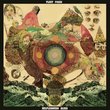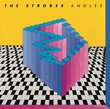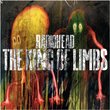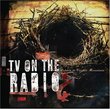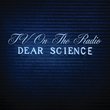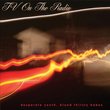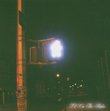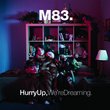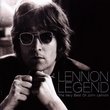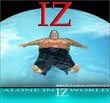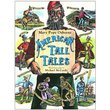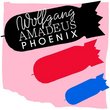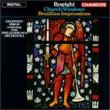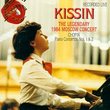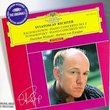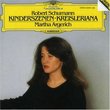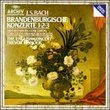| All Artists: TV on the Radio Title: Nine Types of Light Members Wishing: 1 Total Copies: 0 Label: Interscope Records Release Date: 4/12/2011 Album Type: Deluxe Edition Genres: Alternative Rock, Pop, Rock Style: Number of Discs: 1 SwapaCD Credits: 1 Other Editions: Nine Types of Light UPC: 602527662145 |
Search - TV on the Radio :: Nine Types of Light
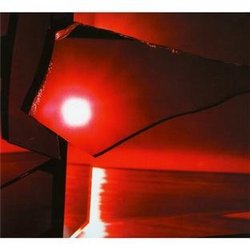 | TV on the Radio Nine Types of Light Genres: Alternative Rock, Pop, Rock
EIGHT THINGS YOU SHOULD KNOW ABOUT THE TEN SONGS ON THE NEW TV ON THE RADIO ALBUM, NINE TYPES OF LIGHT (TWELVE SONGS IF YOU BUY THE DELUXE EDITION) 1. — This TV On The Radio album, Nine Types of Light (Interscope), is a lus... more » |
Larger Image |
CD Details
Synopsis
Product Description
EIGHT THINGS YOU SHOULD KNOW ABOUT THE TEN SONGS ON THE NEW TV ON THE RADIO ALBUM, NINE TYPES OF LIGHT (TWELVE SONGS IF YOU BUY THE DELUXE EDITION) 1.
This TV On The Radio album, Nine Types of Light (Interscope), is a lush and beautiful album that stands apart from the group's previous work. If their other albums had shades of dystopia and distress, this album, sung by Tunde Adebimpe and Kyp Malone, is filled with songs about longing and love. "I like love songs. There's nothing particularly interesting going on with me in my life to bear this work. I like the forms of love songs, the poetry." Kyp adds that though there might be more "positivity" on this album, it wasn't an overall conceit they set out to do. "We've attempted to work on themes before but they fall apart very quickly. More organic versions arise because we're sharing time or space or communication." Though Nine Types of Light will sound like an album full of love songs, often the true meaning of the songs lie deeper. On "You," Tunde sings a haunted refrain; you're the only one I have ever loved. The sincerity of his voice sells the idea of absolute adoration. But Tunde explains, "It's a song about the feeling you get sometimes when you're expressing how much you care about someone but resorting to these beautiful sounding lies. You're the only one I ever loved? It's a terrible thing to say to someone because it's most likely not true." 2.
Nine Types of Light is the fourth album from TV on the Radio. You will want to refer to it as the "fourth proper studio album" from TV On The Radio; those albums were preceded by an EP, Young Liars, and an 18-track handmade CD called OK Calculator, that is considered more like a demo tape (because it was "released" by being hidden in random sofa cushions of New York coffee shops). Enhancing nearly every aspect of their Shortlist Prize-winning Desperate Youth, Blood Thirsty Babes, 2006's Return to Cookie Mountain was released to crazy universal acclaim. Rolling Stone said "It might be the most oddly beautiful, psychedelic and ambitious album of the year," with The New York Times agreeing: "It's more experimental yet catchier, more introspective yet more assertive, by turns gloomier and funnier, and above all richer in both sound and implication. `Return to Cookie Mountain' is simply one of this year's best albums." Nine Types of Light is the follow-up to the band's gorgeous, glorious 2008 release, Dear Science, and proved to be its breakout release. It was named album of the year by Rolling Stone, Spin, Pitchfork, Entertainment Weekly and MTV; and touring behind the album, the group sold out a year's worth of live shows across the world. This, however, did not prevent everyone from referring to TV On The Radio as a Brooklyn band. That is not a bad thing. The group - Tunde Adebimpe, Kyp Malone, Dave Sitek, Jaleel Bunton, Gerard Smith - are indeed from Brooklyn. 3.
But sometimes it's ok to leave. The band recorded Nine Types of Light in Los Angeles, the first time they have recorded outside of Brooklyn. In 2010, the group's multi-instrumentalist, producer and sometimes beat-boxer, Dave Sitek, moved to Los Angeles because he wanted a change of scenery. Nine Types of Light was recorded at his home studio. The experience of recording away from the friendly confines of Greenpoint and Williamsburg wasn't such a pleasant one, however, but not because of any reactionary dislike of LA that sometimes comes from New Yorkers. "I actually like Los Angeles a lot," says Jaleel. "But if there's a bohemian part of the city, a place that can be a creative sanctuary, we were staying in a place that was the opposite." "It was in a high-end mall down the street from Rodeo Drive, and a few blocks from the Modern Instituted of Plastic Surgery," says Tunde. "And they were doing construction on our floor the whole time we were there. It wasn't so much squalor as it was...if I were a door-to-door salesman, it's where I would kill myself." Nine Types of Light was written and recorded in about three months - slightly quicker than they've recorded any previous album. 4.
TV On The Radio do not write traditional pop songs. Often, they change direction two or three times in one song. Distorted guitars, sauntering and reverberating bass, TVOTR tunes are just-barely containing an explosive amount of energy underneath itself - and that tension is nothing less than thrilling. It has become somewhat of a signature of the band, particularly matched with Tunde's serene and poetic vocals. On this album, the group takes an admittedly simpler approach to some of their songs. "Will Do," starts out with wind chimes before giving away to that trademark buzz, with Tunde singing about the yearning for his ungovernable, unrequited love of another. "I think the songs on this album, to me, maybe sound simpler," Tunde says. "But it just might be that we have gotten better at what we do." Other songs on Nine Types Of Light include more up-tempo post-rock jams like "No Future Shock" (vocals by Kyp) and the '80s-rap-beat "Caffeinated Consciousness," which sounds like it was influenced by Big Audio Dynamite. There are two songs, "All Falls Down" and "The Troubles," that will be available on the Deluxe Edition of the album. 5.
Nine Types of Light might sound like a peculiar name for an album. Perhaps a reference to a core scientific principle on the refraction of sunlight. Or a grand ideology of film or photography techniques. But the album title actually isn't a reference to anything specific, the band says. It holds no cryptic meaning. "It's something that kept circling around in my head," Tunde says. "It struck me as odd that that phrase, when you keep it to just nine types of light, it's excluding a billion other types of light. I like how it's a little slippery." Thus, no one should ask Tunde to actually list the nine types of light he is referring to. 6.
There is a cycle that a band goes through with each release that involves recording an album, releasing it and then touring behind it. For a group with a loyal and growing fan-base like TV On The Radio, that cycle can last about two years, which is an awful lot of time to spend with people in a highly-creative environment. This is what happened after Dear Science. "After the last show (for Dear Science), I just wanted to do anything that wasn't this," Tunde explains. "It was such an intense experience - not bad or good necessarily, just intense. I spent a lot of time after that writing and drawing pictures." Says Gerard Smith, "It allows us to do the other things we want to do, or to just decompress, and then come back to the band with some focus. We don't ever want to feel like we have to do this, that it's a job, necessarily." 7.
As celebrated and wonderful as TV On The Radio is, the entity is not enough to contain the entire creative thirst of its members, and the band's five members accomplished in the time between albums. Tunde and Gerard wrote and composed music for "The Lottery," a documentary that looks at public education through the eyes of Harlem's Success Academy annual intake lottery. Tunde also worked on a series of short film that he says may or may not ever see the light of day. He, of course, also starred in the Oscar-nominated film, Rachel Getting Married. Gerard spent time making music on his own, producing new music from the NYC-based Midnight Masses. Jaleel spent the period in between records moving out from behind the drums to playing guitar again, his first instrument. He also played in the blues and gospel band, Reverend Vince Anderson & His Love Choir ("One of my favorite gigs ever," he says.), and continued to periodically tend bar at legendary Lower East Side bar, Max Fish. Dave Sitek released his own solo album, under the name, Maximum Balloon (DGC/Interscope), which featured friends like Karen O, Theophilus London and David Byrne. He played with, collaborated with and produced artists like the Yeah Yeah Yeahs, Wale and Holly Miranda. Recently he announced he would be producing and playing bass on the new album from Jane's Addiction. Kyp released his solo album under the name Rain Machine, and embarked on a couple of brief tours, including a recent one with his friend from San Francisco, singer-songwriter, Jolie Holland. One would think the last thing they'd want to do during a break would be more recording and touring, but Kyp felt differently. He says, "I feel like every concentrated experience of making a record, touring a record, and playing with different people, dealing with different social dynamics potentially increases my musicianship and how I understand music." 8.
TV On The Radio plan an extensive tour beginning just before the release of Nine Types of Light. They will headline Radio City Music Hall in New York on April 13, the day after the album's release.
This TV On The Radio album, Nine Types of Light (Interscope), is a lush and beautiful album that stands apart from the group's previous work. If their other albums had shades of dystopia and distress, this album, sung by Tunde Adebimpe and Kyp Malone, is filled with songs about longing and love. "I like love songs. There's nothing particularly interesting going on with me in my life to bear this work. I like the forms of love songs, the poetry." Kyp adds that though there might be more "positivity" on this album, it wasn't an overall conceit they set out to do. "We've attempted to work on themes before but they fall apart very quickly. More organic versions arise because we're sharing time or space or communication." Though Nine Types of Light will sound like an album full of love songs, often the true meaning of the songs lie deeper. On "You," Tunde sings a haunted refrain; you're the only one I have ever loved. The sincerity of his voice sells the idea of absolute adoration. But Tunde explains, "It's a song about the feeling you get sometimes when you're expressing how much you care about someone but resorting to these beautiful sounding lies. You're the only one I ever loved? It's a terrible thing to say to someone because it's most likely not true." 2.
Nine Types of Light is the fourth album from TV on the Radio. You will want to refer to it as the "fourth proper studio album" from TV On The Radio; those albums were preceded by an EP, Young Liars, and an 18-track handmade CD called OK Calculator, that is considered more like a demo tape (because it was "released" by being hidden in random sofa cushions of New York coffee shops). Enhancing nearly every aspect of their Shortlist Prize-winning Desperate Youth, Blood Thirsty Babes, 2006's Return to Cookie Mountain was released to crazy universal acclaim. Rolling Stone said "It might be the most oddly beautiful, psychedelic and ambitious album of the year," with The New York Times agreeing: "It's more experimental yet catchier, more introspective yet more assertive, by turns gloomier and funnier, and above all richer in both sound and implication. `Return to Cookie Mountain' is simply one of this year's best albums." Nine Types of Light is the follow-up to the band's gorgeous, glorious 2008 release, Dear Science, and proved to be its breakout release. It was named album of the year by Rolling Stone, Spin, Pitchfork, Entertainment Weekly and MTV; and touring behind the album, the group sold out a year's worth of live shows across the world. This, however, did not prevent everyone from referring to TV On The Radio as a Brooklyn band. That is not a bad thing. The group - Tunde Adebimpe, Kyp Malone, Dave Sitek, Jaleel Bunton, Gerard Smith - are indeed from Brooklyn. 3.
But sometimes it's ok to leave. The band recorded Nine Types of Light in Los Angeles, the first time they have recorded outside of Brooklyn. In 2010, the group's multi-instrumentalist, producer and sometimes beat-boxer, Dave Sitek, moved to Los Angeles because he wanted a change of scenery. Nine Types of Light was recorded at his home studio. The experience of recording away from the friendly confines of Greenpoint and Williamsburg wasn't such a pleasant one, however, but not because of any reactionary dislike of LA that sometimes comes from New Yorkers. "I actually like Los Angeles a lot," says Jaleel. "But if there's a bohemian part of the city, a place that can be a creative sanctuary, we were staying in a place that was the opposite." "It was in a high-end mall down the street from Rodeo Drive, and a few blocks from the Modern Instituted of Plastic Surgery," says Tunde. "And they were doing construction on our floor the whole time we were there. It wasn't so much squalor as it was...if I were a door-to-door salesman, it's where I would kill myself." Nine Types of Light was written and recorded in about three months - slightly quicker than they've recorded any previous album. 4.
TV On The Radio do not write traditional pop songs. Often, they change direction two or three times in one song. Distorted guitars, sauntering and reverberating bass, TVOTR tunes are just-barely containing an explosive amount of energy underneath itself - and that tension is nothing less than thrilling. It has become somewhat of a signature of the band, particularly matched with Tunde's serene and poetic vocals. On this album, the group takes an admittedly simpler approach to some of their songs. "Will Do," starts out with wind chimes before giving away to that trademark buzz, with Tunde singing about the yearning for his ungovernable, unrequited love of another. "I think the songs on this album, to me, maybe sound simpler," Tunde says. "But it just might be that we have gotten better at what we do." Other songs on Nine Types Of Light include more up-tempo post-rock jams like "No Future Shock" (vocals by Kyp) and the '80s-rap-beat "Caffeinated Consciousness," which sounds like it was influenced by Big Audio Dynamite. There are two songs, "All Falls Down" and "The Troubles," that will be available on the Deluxe Edition of the album. 5.
Nine Types of Light might sound like a peculiar name for an album. Perhaps a reference to a core scientific principle on the refraction of sunlight. Or a grand ideology of film or photography techniques. But the album title actually isn't a reference to anything specific, the band says. It holds no cryptic meaning. "It's something that kept circling around in my head," Tunde says. "It struck me as odd that that phrase, when you keep it to just nine types of light, it's excluding a billion other types of light. I like how it's a little slippery." Thus, no one should ask Tunde to actually list the nine types of light he is referring to. 6.
There is a cycle that a band goes through with each release that involves recording an album, releasing it and then touring behind it. For a group with a loyal and growing fan-base like TV On The Radio, that cycle can last about two years, which is an awful lot of time to spend with people in a highly-creative environment. This is what happened after Dear Science. "After the last show (for Dear Science), I just wanted to do anything that wasn't this," Tunde explains. "It was such an intense experience - not bad or good necessarily, just intense. I spent a lot of time after that writing and drawing pictures." Says Gerard Smith, "It allows us to do the other things we want to do, or to just decompress, and then come back to the band with some focus. We don't ever want to feel like we have to do this, that it's a job, necessarily." 7.
As celebrated and wonderful as TV On The Radio is, the entity is not enough to contain the entire creative thirst of its members, and the band's five members accomplished in the time between albums. Tunde and Gerard wrote and composed music for "The Lottery," a documentary that looks at public education through the eyes of Harlem's Success Academy annual intake lottery. Tunde also worked on a series of short film that he says may or may not ever see the light of day. He, of course, also starred in the Oscar-nominated film, Rachel Getting Married. Gerard spent time making music on his own, producing new music from the NYC-based Midnight Masses. Jaleel spent the period in between records moving out from behind the drums to playing guitar again, his first instrument. He also played in the blues and gospel band, Reverend Vince Anderson & His Love Choir ("One of my favorite gigs ever," he says.), and continued to periodically tend bar at legendary Lower East Side bar, Max Fish. Dave Sitek released his own solo album, under the name, Maximum Balloon (DGC/Interscope), which featured friends like Karen O, Theophilus London and David Byrne. He played with, collaborated with and produced artists like the Yeah Yeah Yeahs, Wale and Holly Miranda. Recently he announced he would be producing and playing bass on the new album from Jane's Addiction. Kyp released his solo album under the name Rain Machine, and embarked on a couple of brief tours, including a recent one with his friend from San Francisco, singer-songwriter, Jolie Holland. One would think the last thing they'd want to do during a break would be more recording and touring, but Kyp felt differently. He says, "I feel like every concentrated experience of making a record, touring a record, and playing with different people, dealing with different social dynamics potentially increases my musicianship and how I understand music." 8.
TV On The Radio plan an extensive tour beginning just before the release of Nine Types of Light. They will headline Radio City Music Hall in New York on April 13, the day after the album's release.
Similar CDs
| Fleet Foxes Helplessness Blues Genre: Alternative Rock Label: Sub Pop | |
| Radiohead The King Of Limbs Genres: Alternative Rock, Pop, Rock Label: TBD Records | |
| TV on the Radio Dear Science Genres: Alternative Rock, Special Interest, Pop, Rock Label: DGC/Interscope | |
| M83 Hurry Up, We're Dreaming Genre: Alternative Rock Label: Mute | |
Similarly Requested CDs
| John Lennon Lennon Legend: The Very Best Of John Lennon Genres: Folk, Pop, Rock, Classic Rock Label: Capitol | |
| Arcade Fire Funeral Genres: Alternative Rock, Special Interest, Pop, Rock Label: Merge Records | |
| Phoenix Wolfgang Amadeus Phoenix Genres: Alternative Rock, Pop Label: Glass Note | |

 Track Listings (13) - Disc #1
Track Listings (13) - Disc #1